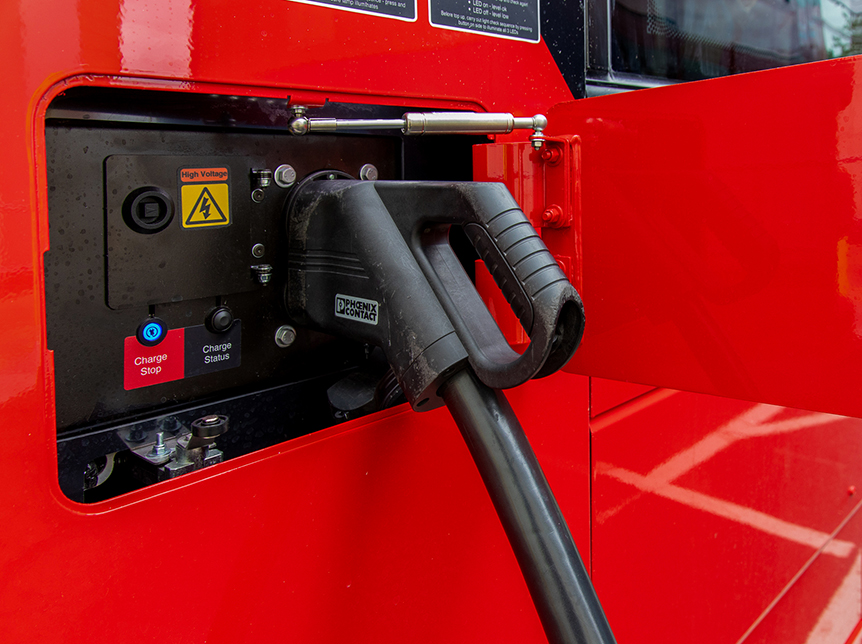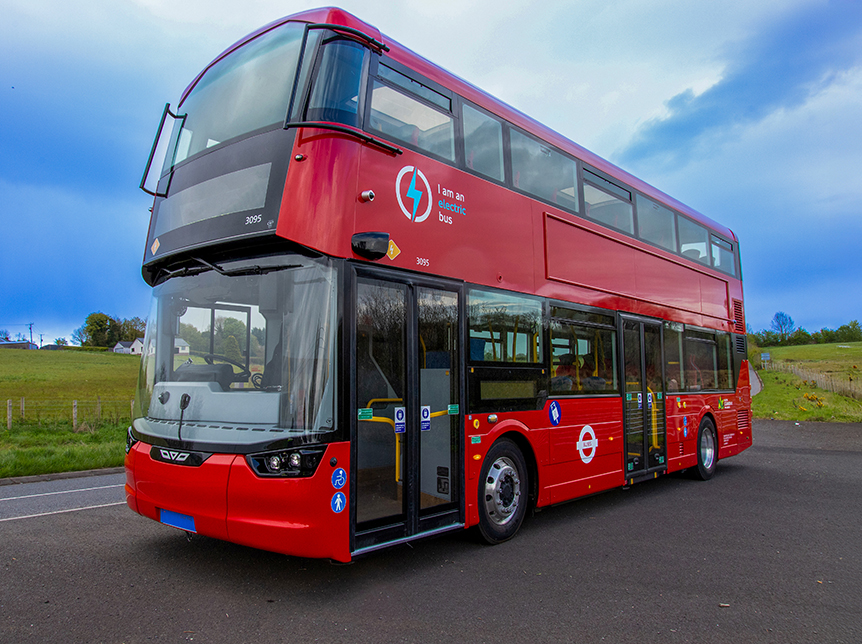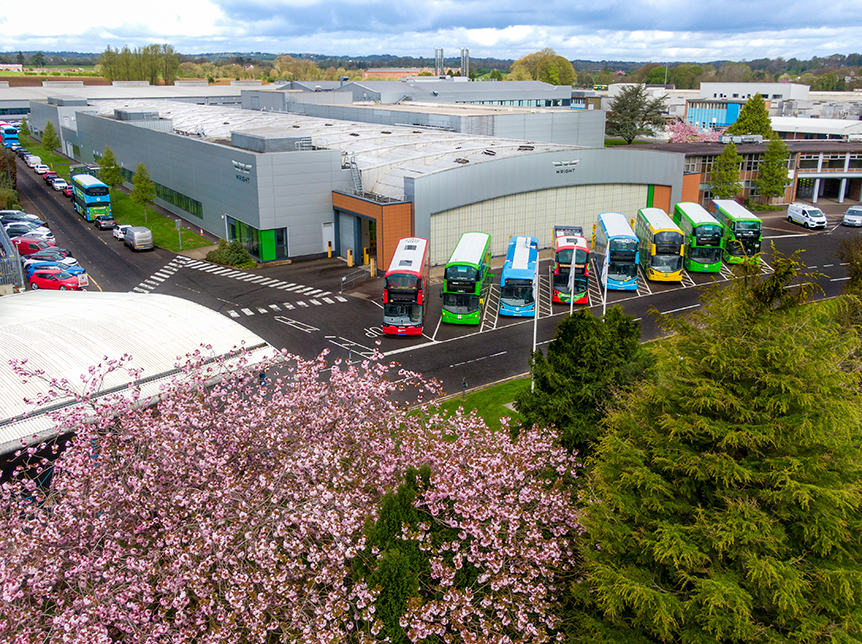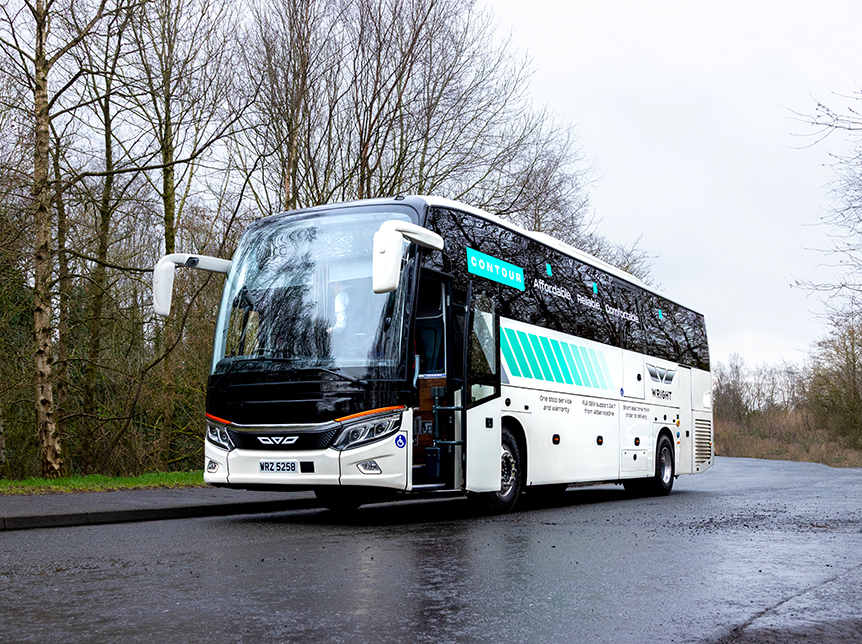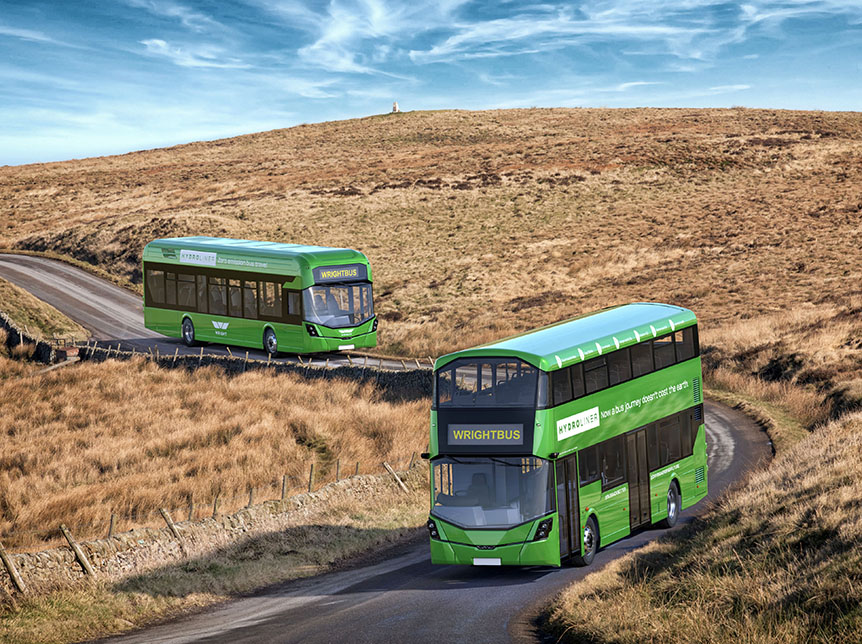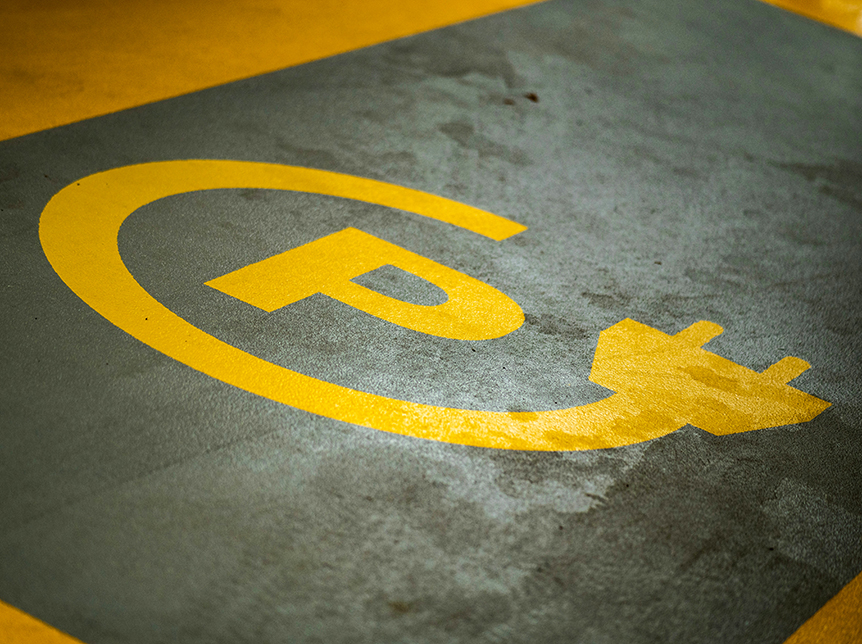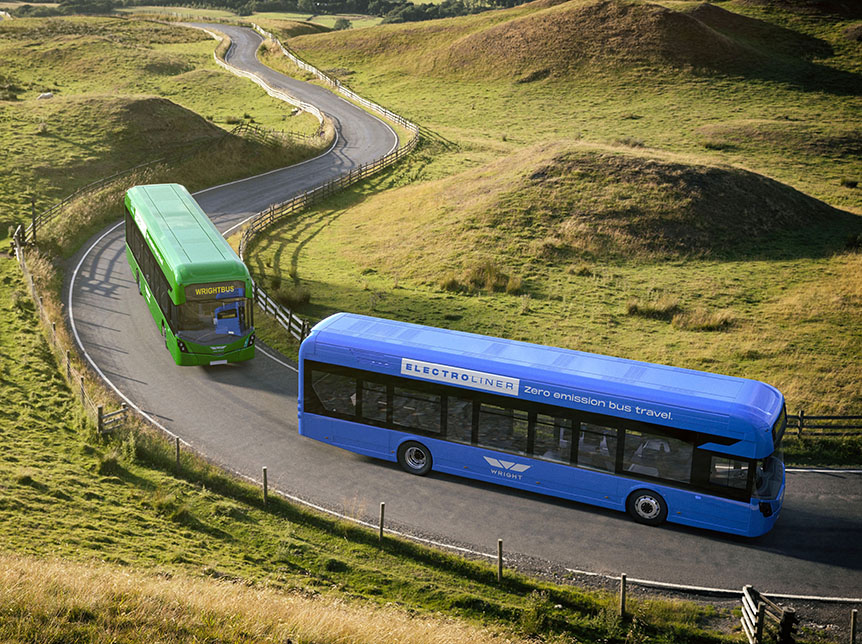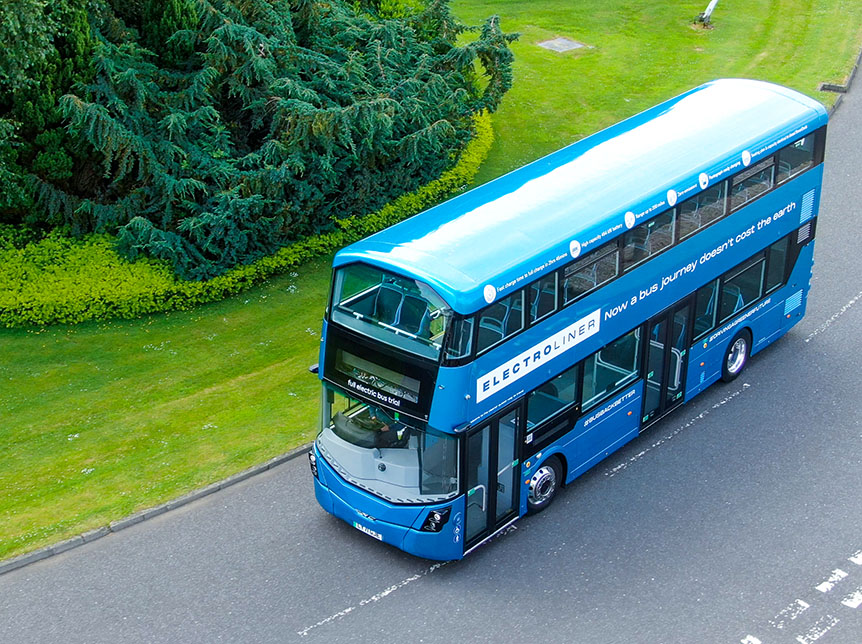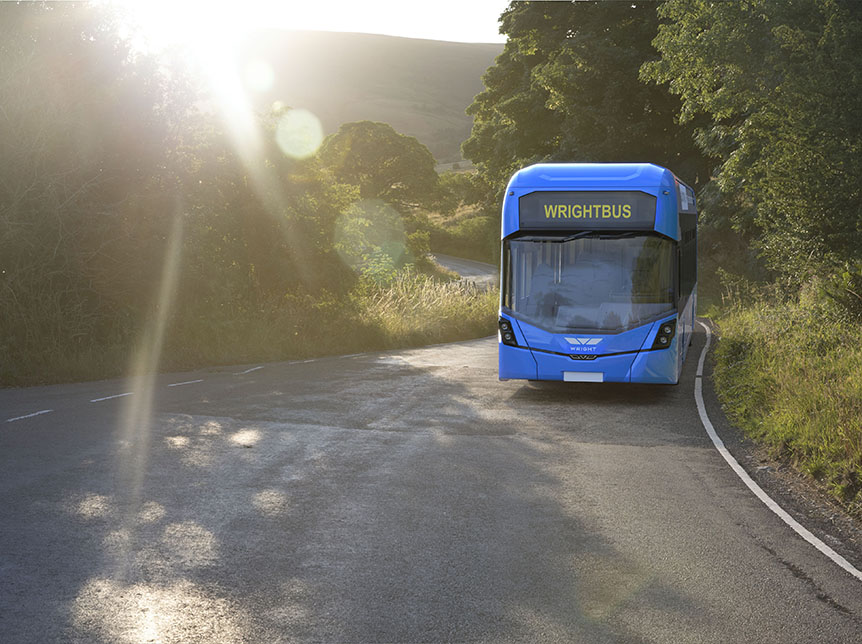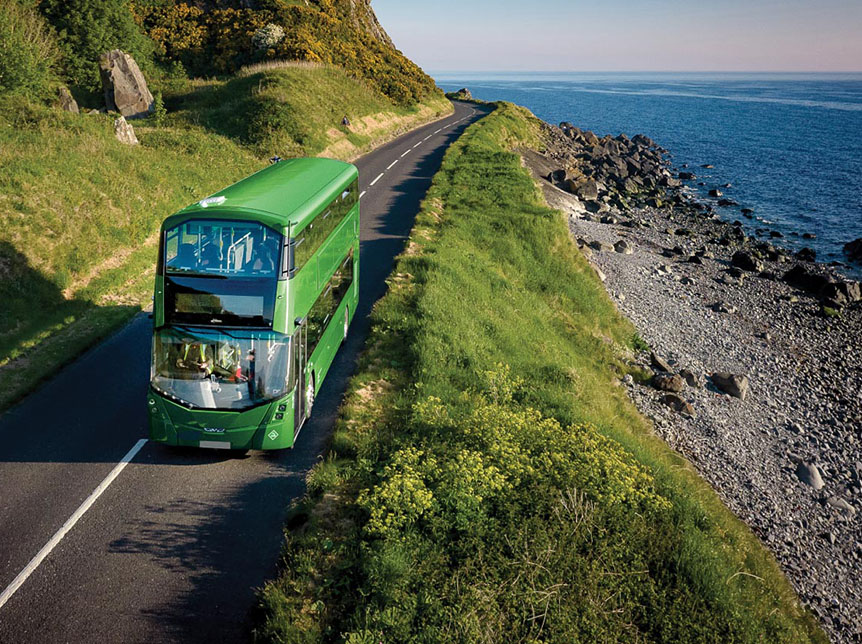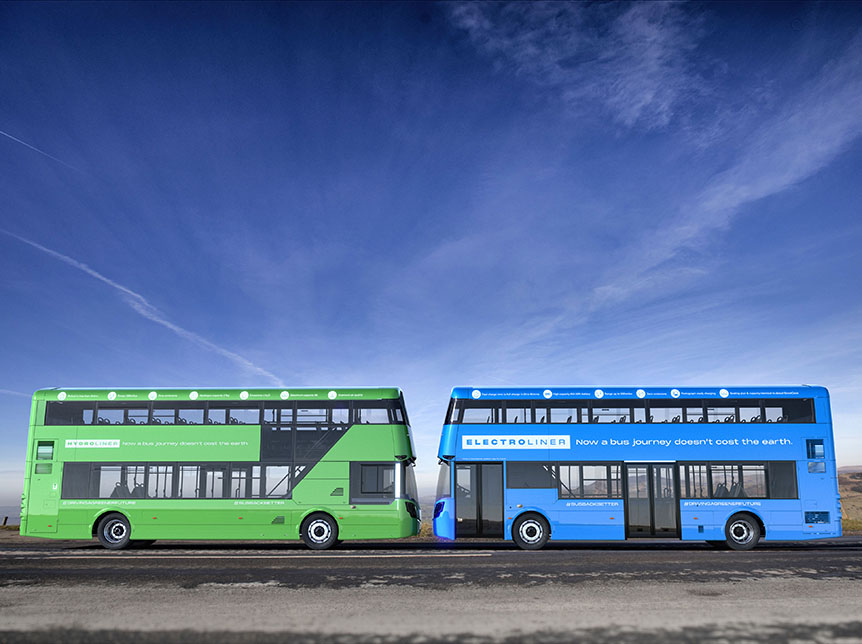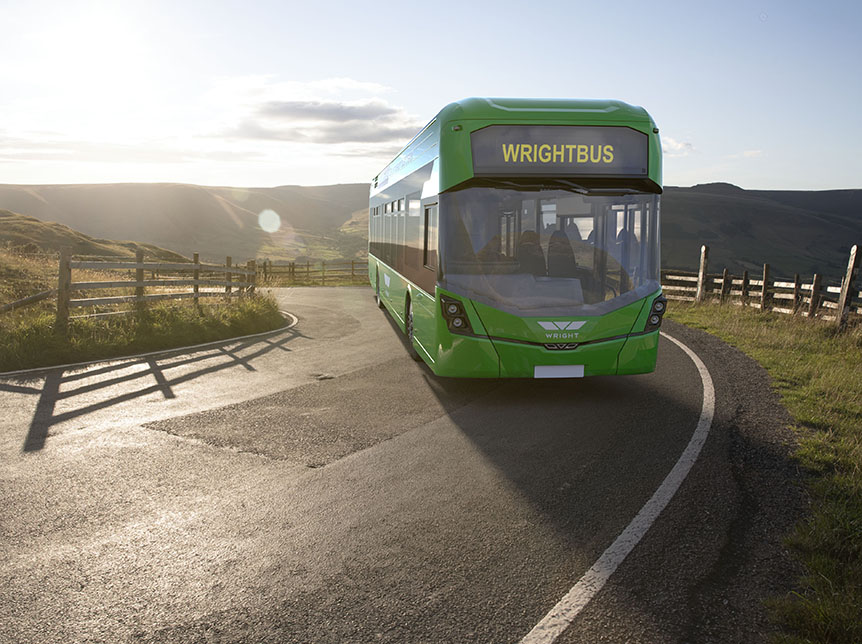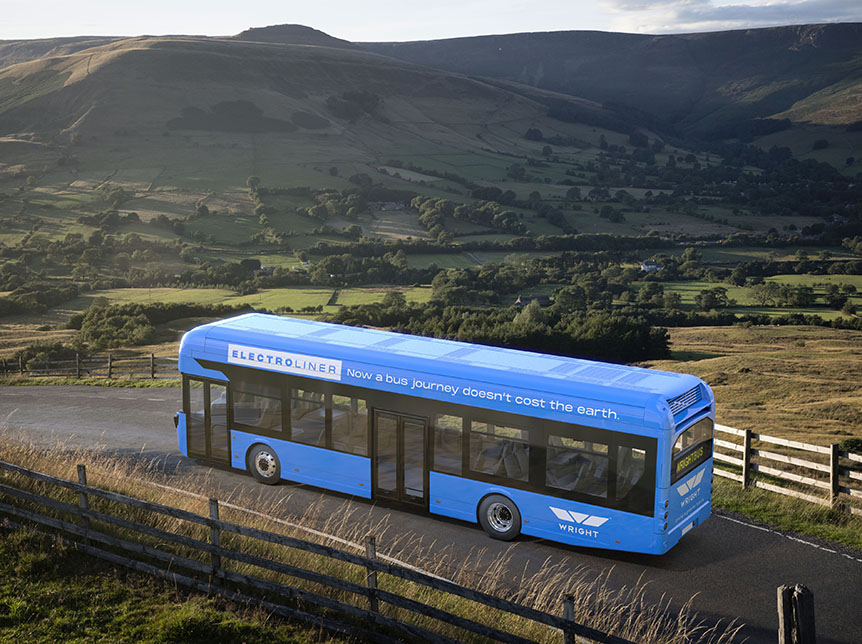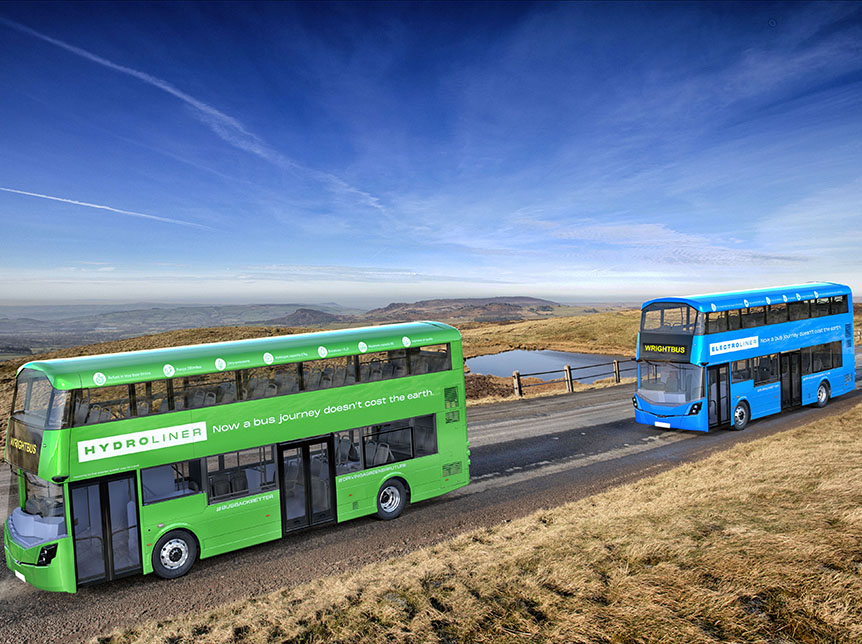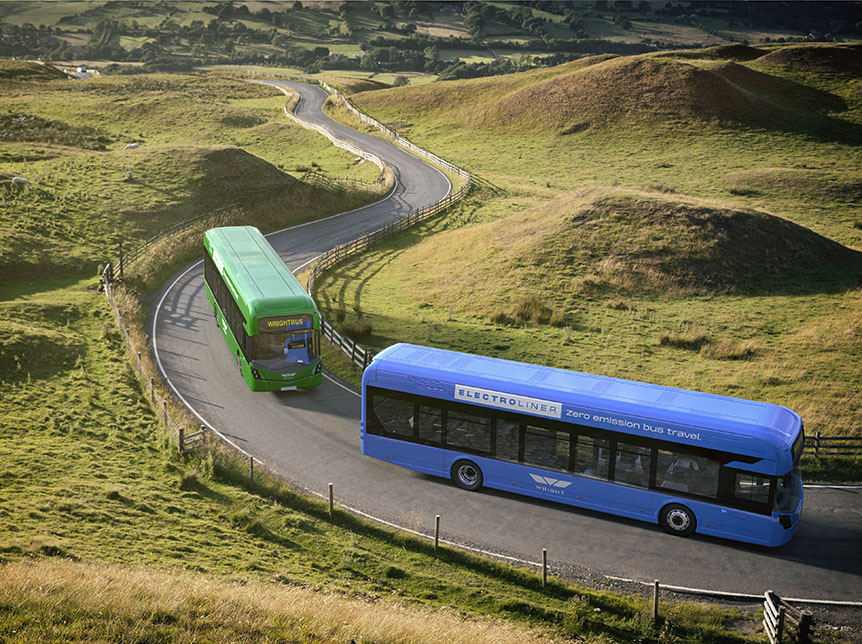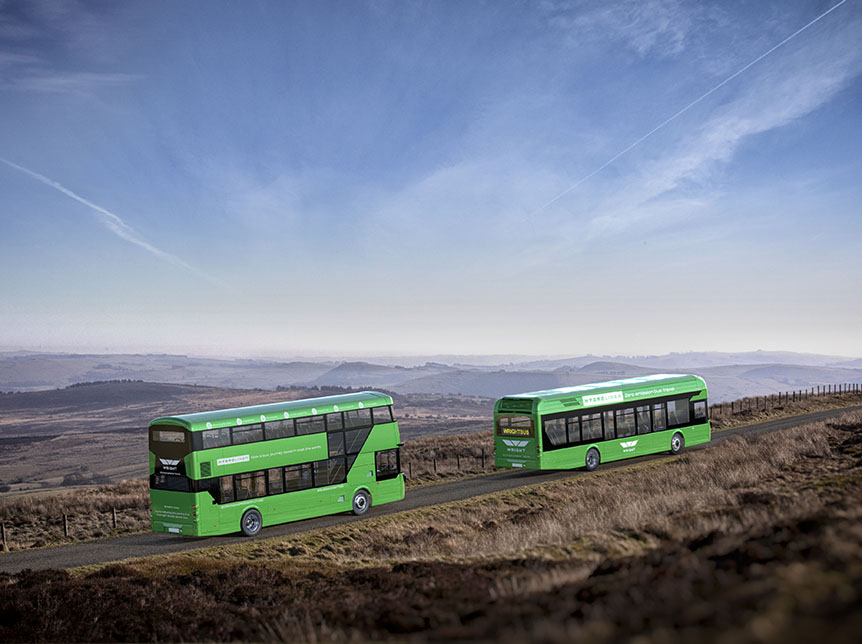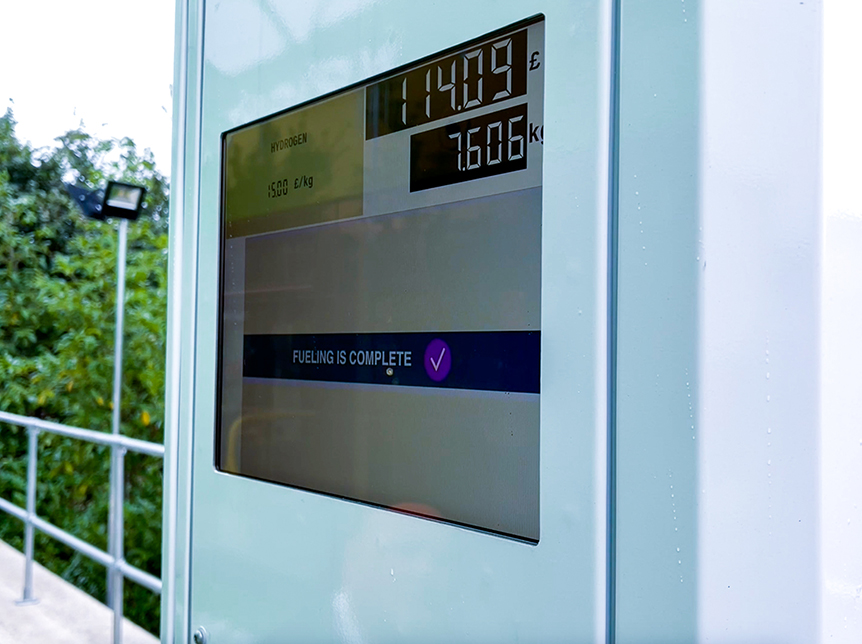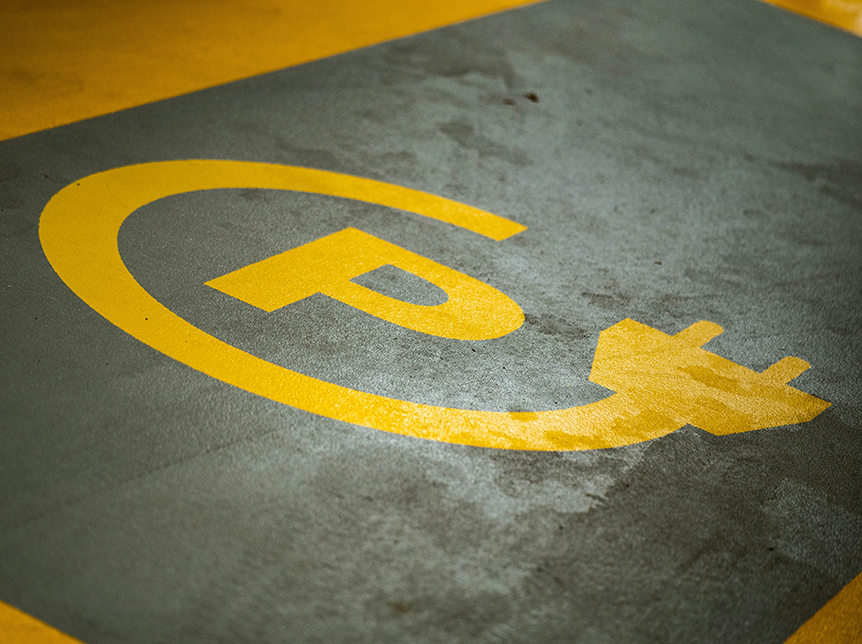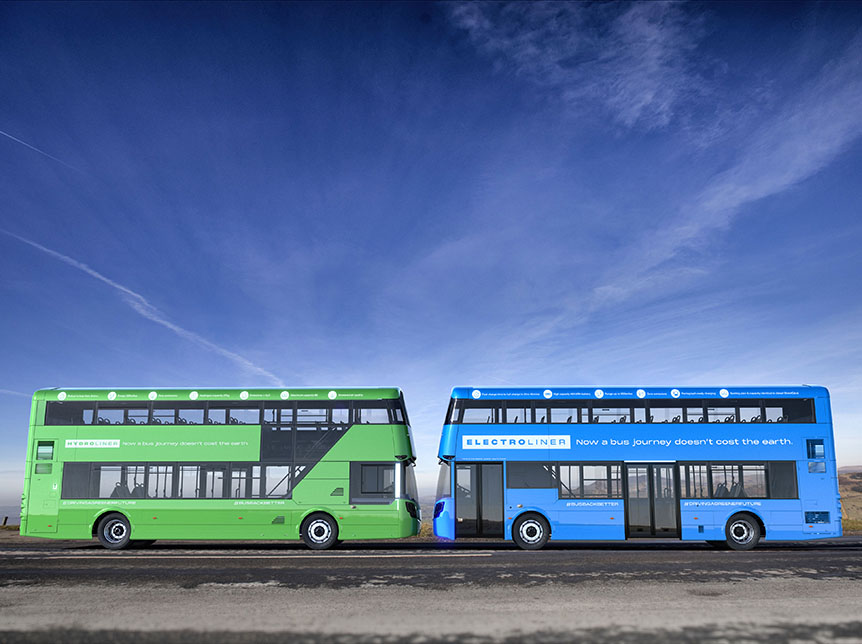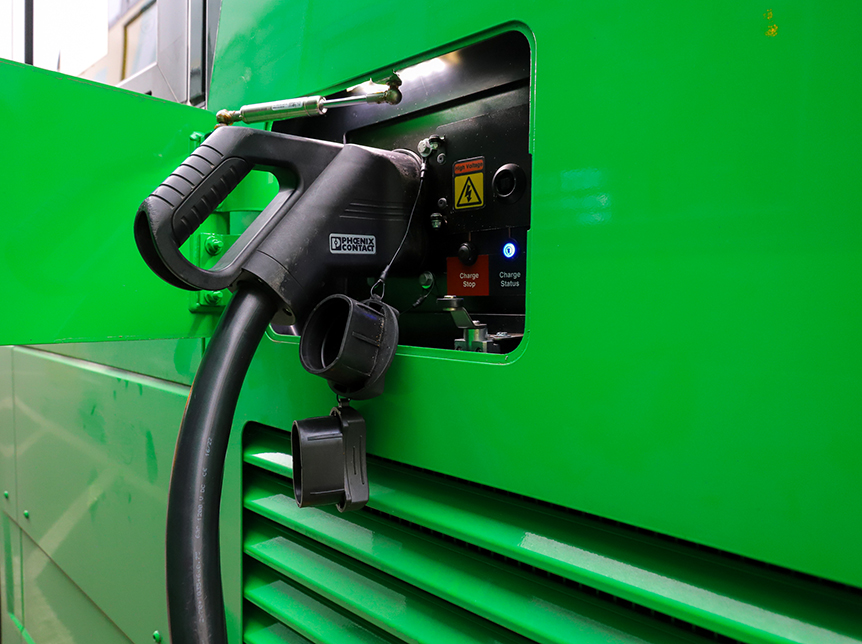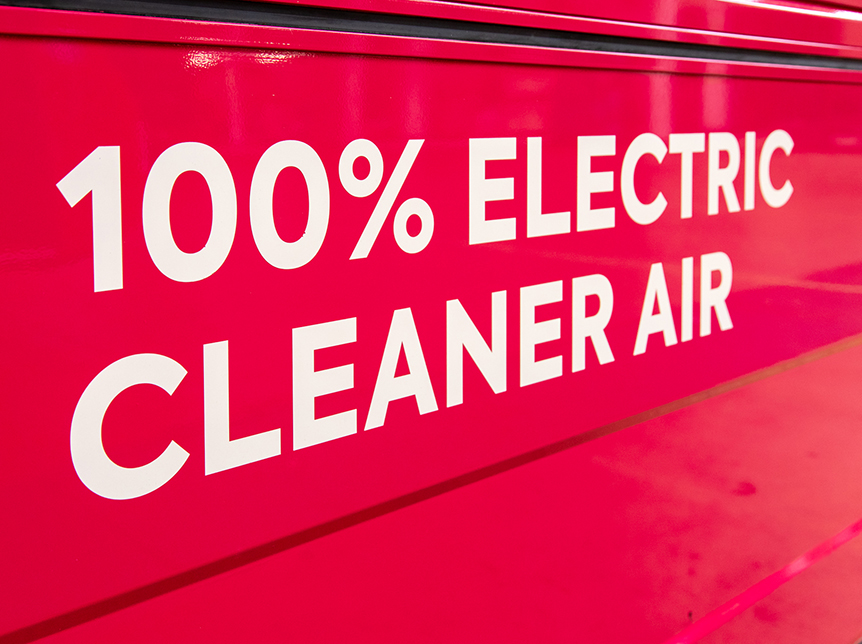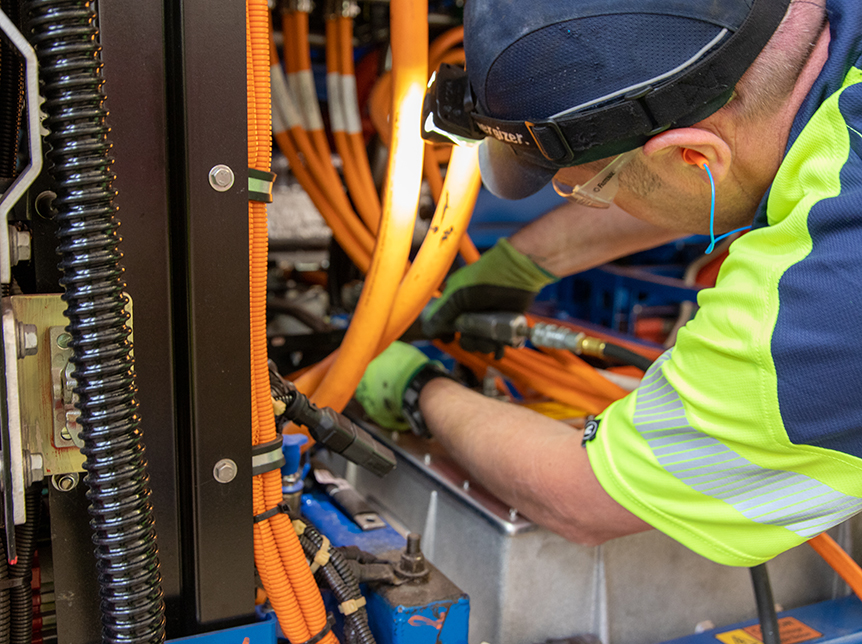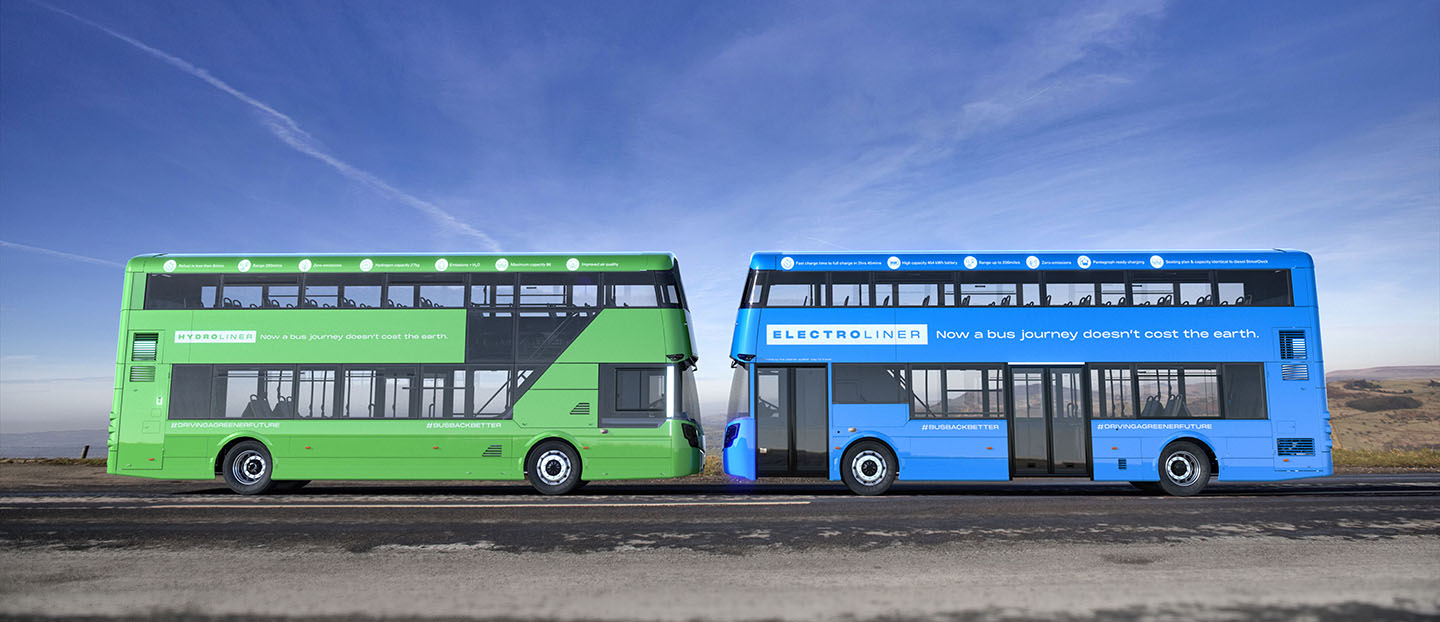
As the world moves towards greener alternatives in public transportation, electric buses and hydrogen vehicles are emerging as the leading technologies in the drive for sustainability. Both of these solutions offer innovative ways to reduce the environmental impact of transportation, minimize pollution, and support the global transition to cleaner energy sources. In this article, we explore how electric buses and hydrogen vehicles are shaping the future of transportation.
Electric Buses: Clean, Quiet, and Efficient
Electric buses are rapidly becoming a cornerstone of sustainable urban mobility. Powered entirely by electricity, these buses are designed to eliminate tailpipe emissions, reducing air pollution and enhancing urban air quality. As cities increasingly focus on environmental sustainability, electric buses offer a zero-emission solution that helps achieve cleaner, quieter, and more energy-efficient public transportation systems.
Electric buses operate using batteries that are charged via various methods such as plug-in chargers or wireless induction systems. The shift from diesel to electric propulsion is not only beneficial for the environment but also provides a smoother, quieter ride for passengers, with fewer vibrations and reduced noise pollution in busy urban areas.
Benefits of Electric Buses:
- Zero Emissions: Electric buses produce no tailpipe emissions, making them ideal for reducing urban air pollution.
- Lower Operating Costs: With fewer moving parts, electric buses require less maintenance and are cheaper to operate compared to diesel buses.
- Energy Efficiency: Electric motors are highly efficient and convert more energy into motion, making electric buses a cost-effective transportation option.
- Enhanced Passenger Comfort: Electric buses offer quieter and more comfortable rides, contributing to an improved public transportation experience.
Hydrogen Vehicles: The Power of Clean Fuel
Hydrogen vehicles, including buses and cars, use hydrogen fuel cells to generate electricity, emitting only water vapor as a byproduct. This makes hydrogen vehicles another viable zero-emission alternative to traditional combustion engine vehicles. The fuel cell works by combining hydrogen with oxygen from the air, producing electricity that powers the vehicle's electric motor.
Hydrogen vehicles are an essential part of the future of sustainable transportation, particularly for long-range applications. They offer advantages such as fast refueling times and a range comparable to that of gasoline-powered vehicles. This makes hydrogen-powered buses particularly well-suited for long-distance travel, such as intercity or freight transport.
Benefits of Hydrogen Vehicles:
- Zero Emissions: Hydrogen vehicles emit only water vapor, making them an entirely clean energy solution.
- Fast Refueling: Unlike electric vehicles that require longer charging times, hydrogen vehicles can be refueled in just a few minutes, making them ideal for high-usage transport routes.
- Longer Range: Hydrogen fuel cells offer a longer driving range compared to current electric batteries, making them suitable for a wider range of applications, including long-haul transport.
- Sustainable Fuel Source: Hydrogen can be produced using renewable energy sources like wind and solar, making it a sustainable and scalable energy option.
Electric Buses vs. Hydrogen Vehicles: Which Is the Better Option?
While both electric buses and hydrogen vehicles offer zero-emission transportation solutions, they each have distinct advantages depending on the application.
- Electric Buses: Electric buses are ideal for short- to medium-range routes in urban areas. Their energy efficiency, quiet operation, and cost savings make them a strong choice for city-based public transportation systems. However, they can be limited by battery range and the need for charging infrastructure.
- Hydrogen Vehicles: Hydrogen vehicles, on the other hand, are better suited for long-distance travel due to their quicker refueling times and longer ranges. They are a great option for intercity buses or freight transportation, where charging infrastructure for electric buses may not be as feasible.
The Road Ahead: A Combination of Solutions
In many cities and regions, the future of public transportation may not be defined by one technology over the other, but by a combination of both electric buses and hydrogen vehicles. Each offers unique benefits, and by integrating both solutions into transportation networks, cities can create a flexible, resilient, and sustainable system that reduces carbon footprints and meets diverse transportation needs.
As advancements in both electric and hydrogen technologies continue to progress, both sectors will play an important role in shaping the future of sustainable transport. From cleaner air in cities to a reduction in global greenhouse gas emissions, the widespread adoption of electric buses and hydrogen vehicles marks a critical step toward a greener, more sustainable transportation future.
Read more
The Double Decker Electric Buses: Revolutionizing Urban Transportation
Read onSingle Decker Electric Buses: Paving the Way for Sustainable Public Transport
Read onHybrid Buses: The Future of Sustainable Double Decker Transportation
Read onThe Future of Public Transit: Single Decker Buses and Hydrogen Fuel Cell Vehicles
Read onExploring the Future of Transportation: Battery Electric Vehicles and Double Decker Buses
Read onNavigating Urban Landscapes: The Versatility of Single Deck Buses and Double Deck Buses
Read onLondon's Bendy Bus Legacy and the Innovation of London Electric Vehicle Company
Read onPioneering Zero-Emission Transport: The Rise of Electric Bus Companies in the UK
Read onEmbracing Tomorrow's Roads: Zero-Emission vs. Battery Electric Vehicles
Read onThe Perfect Blend: Exploring Hybrid Electric Vehicles and the Role of Coach Builders
Read on
Get in touch
Wrightbus has been at the forefront of transport innovation since 1946, relentlessly pushing the boundaries with its commitment to quality, style and safety.
